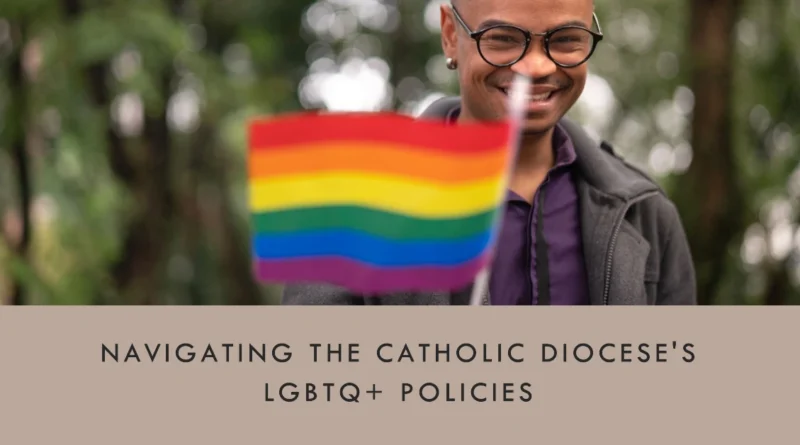Understanding the Catholic Diocese of Cleveland’s Policies on LGBTQ+ Issues
In recent times, the Catholic Diocese of Cleveland has become a focal point of discussion due to its strict policies concerning LGBTQ+ matters. These policies have generated strong reactions from both proponents and opponents, igniting a passionate debate within and beyond the Catholic community.
The Controversial Policies
The diocese’s policies include several contentious elements:
1. Barring LGBTQ+ Expression
One of the central aspects of the diocese’s policy is the prohibition of LGBTQ+ expression within its institutions. This policy has raised questions about the church’s stance on LGBTQ+ individuals and their rights.
2. Rejecting Gender-Affirming Care
The diocese’s rejection of gender-affirming care has sparked concerns about transgender individuals’ access to essential medical services. Critics argue that this policy may contribute to discrimination and harm against this vulnerable community.
3. Disapproving of Preferred Pronouns
Another divisive element of the diocese’s policies is its disapproval of preferred pronouns. This has led to discussions about respecting individuals’ gender identities and the importance of using correct pronouns as a sign of respect and dignity.
The Broader Context
To understand the significance of these policies, it’s essential to consider the broader context within the Catholic Church. The issue of LGBTQ+ rights and acceptance has been a source of tension and debate within the church for many years.
Differing Perspectives
Within the Catholic Church, there are varying perspectives on LGBTQ+ issues. Some dioceses and individuals advocate for a more inclusive and accepting approach, emphasizing love, compassion, and understanding towards LGBTQ+ individuals. They argue that the church should evolve with societal changes and emphasize its message of love and acceptance.
Traditional Teachings
On the other hand, some dioceses and church leaders adhere to more traditional teachings that view homosexuality and gender diversity through a lens of sin or moral imperfection. They believe that the church must uphold its doctrines and teachings, even in the face of evolving societal attitudes.
The Ongoing Debate
The situation in the Catholic Diocese of Cleveland exemplifies the broader conversations taking place within the Catholic Church. It underscores the ongoing tension between traditional doctrine and evolving societal attitudes toward LGBTQ+ rights and acceptance.
As this issue continues to unfold, it remains a topic of great interest and debate in both religious and secular communities. The Catholic Church, like many religious institutions, grapples with the challenge of reconciling its long-standing teachings with the changing world around it.
Conclusion
The Catholic Diocese of Cleveland’s policies on LGBTQ+ issues have ignited a passionate debate, highlighting the complex and evolving nature of discussions surrounding faith, tradition, and social progress. While these policies may reflect the stance of a particular diocese, they resonate with broader questions about the role of the church in contemporary society and its approach to issues of human rights and dignity.
It remains to be seen how these policies will evolve and whether they will influence the broader direction of the Catholic Church’s stance on LGBTQ+ matters. As society continues to grapple with these issues, respectful dialogue and understanding will be crucial in fostering empathy and reconciliation among different perspectives.




